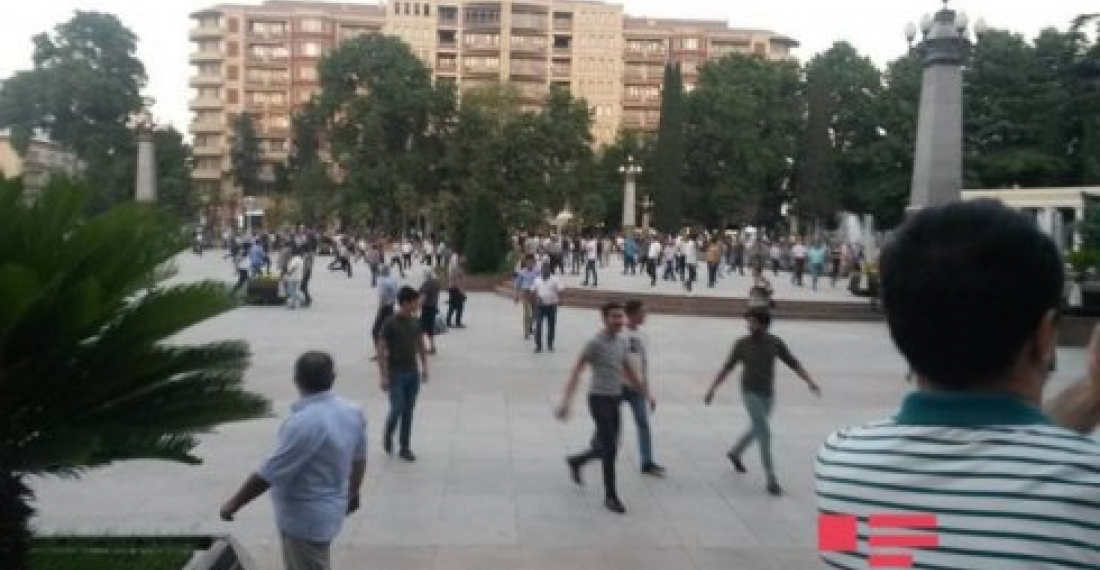Tension remains high in Azerbaijan's second city, Ganca, after incidents last evening (10 July) during which hundreds of protestors clashed with police in front of the government building in the city centre. In the clashes two police officers were klilled and forty protestors arrested. The protests followed an incident last week when a local resident tried to kill the main government representative in the city, Elmar Valiyev.
Yesterday's incidents started when a group of around 200 protestors gathered in the city centre, allegedly armed with knives and sharp objects, and calling for the release of a man who is in detention accused of the attempted murder of the Elmar Valiyev. Police and Ministry of Interior troops reacted quickly, breaking up the protests. Scenes of the protest were broadcast live on social media by some local residents. It later transpired that during the clashes two police colonels were killed. The authorities are saying that two persons suspected of the murders managed to escape. They have issued pictures and details of the two men and have asked the public for information on their whereabouts. The main opposition parties in Azerbaijan - Musavat and Popular Front Party, have distanced themselves from the protests, according to the BBC Azerbaijani service who interviewed some of their leaders.
Commonspace.eu political editor said in a comment that "the incidents in Ganca constitute a serious challenge to the government of president Ilham Aliyev. The protestors seem to be religiously inspired, with some support in the wider community. Ganca is traditionally a stronghold of Shia Islam, the main religious tradition in Azerbaijan, however signs of religious radicalism in Ganca have so far been under the surface. The government has to move cautiously in order not to create a backlash within the wider community. But the audacious murder of two senior police officers in the centre of the second largest city is a serious challenege to the government. The incidents in Ganca also need to be seen in the wider political context in the country. The government has curtailed the space for criticism or political activism, but Azerbaijan remains an open country with citizens able to access most social media. At the moment the government is fighting on three fronts - internally it is trying to clean some of the most acute cases of corruption within its own ranks that it belatedly has recognised as being a serious impediment to it its work; it is in direct confrontation with the secular opposition who accuse it of totalitarianism and abuse of power; and it is in confrontation with radical religious groups who abhor the secular nature of the Azerbaijani leadership, and all it represents. As the events in Ganca in the last days have shown, the latter challenge may prove the most difficult".
source: commonspace.eu
photo: scenes from the portests in Ganca on 10 July 2018 (picture courtesy of APA news agency, Baku).






